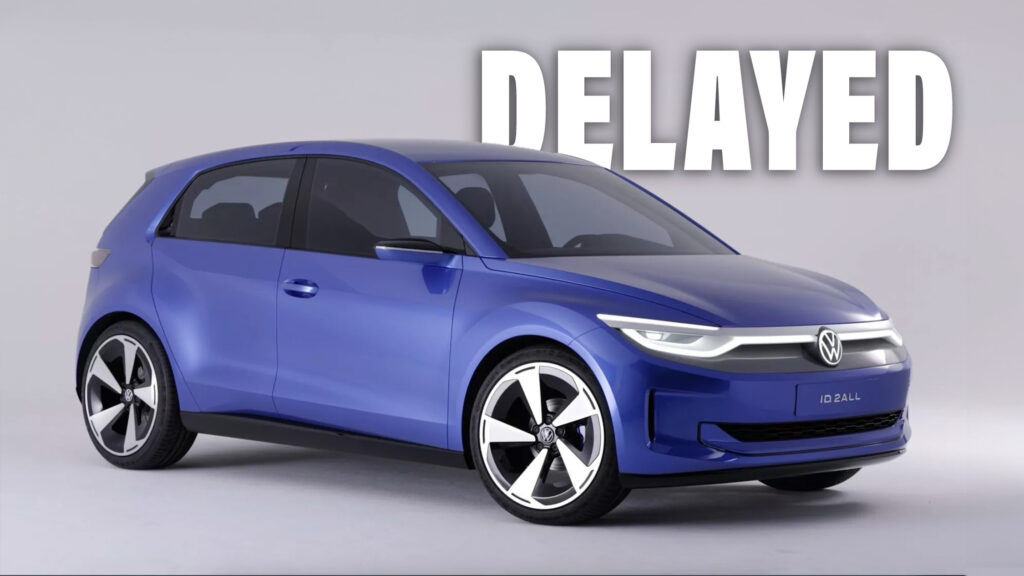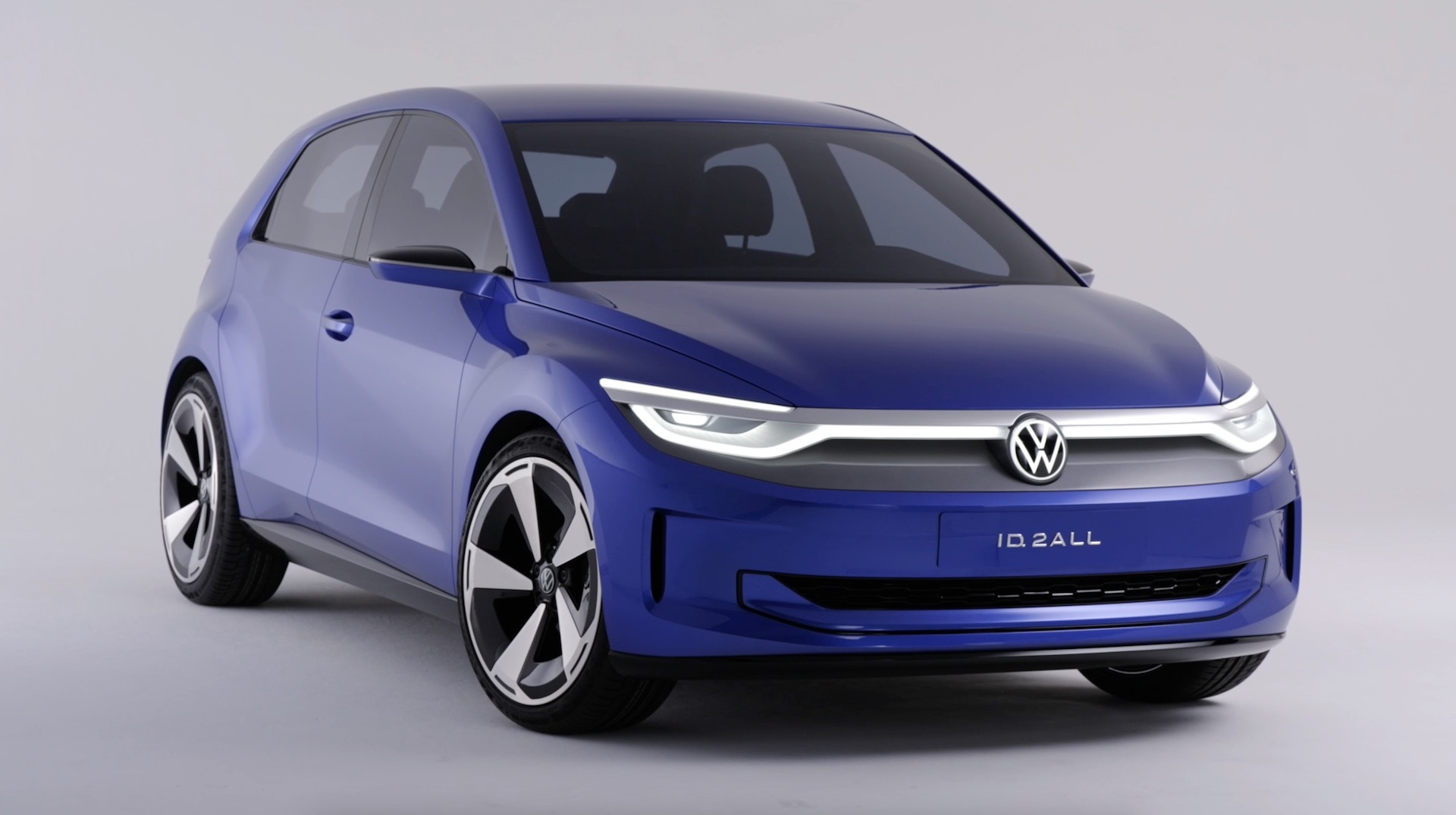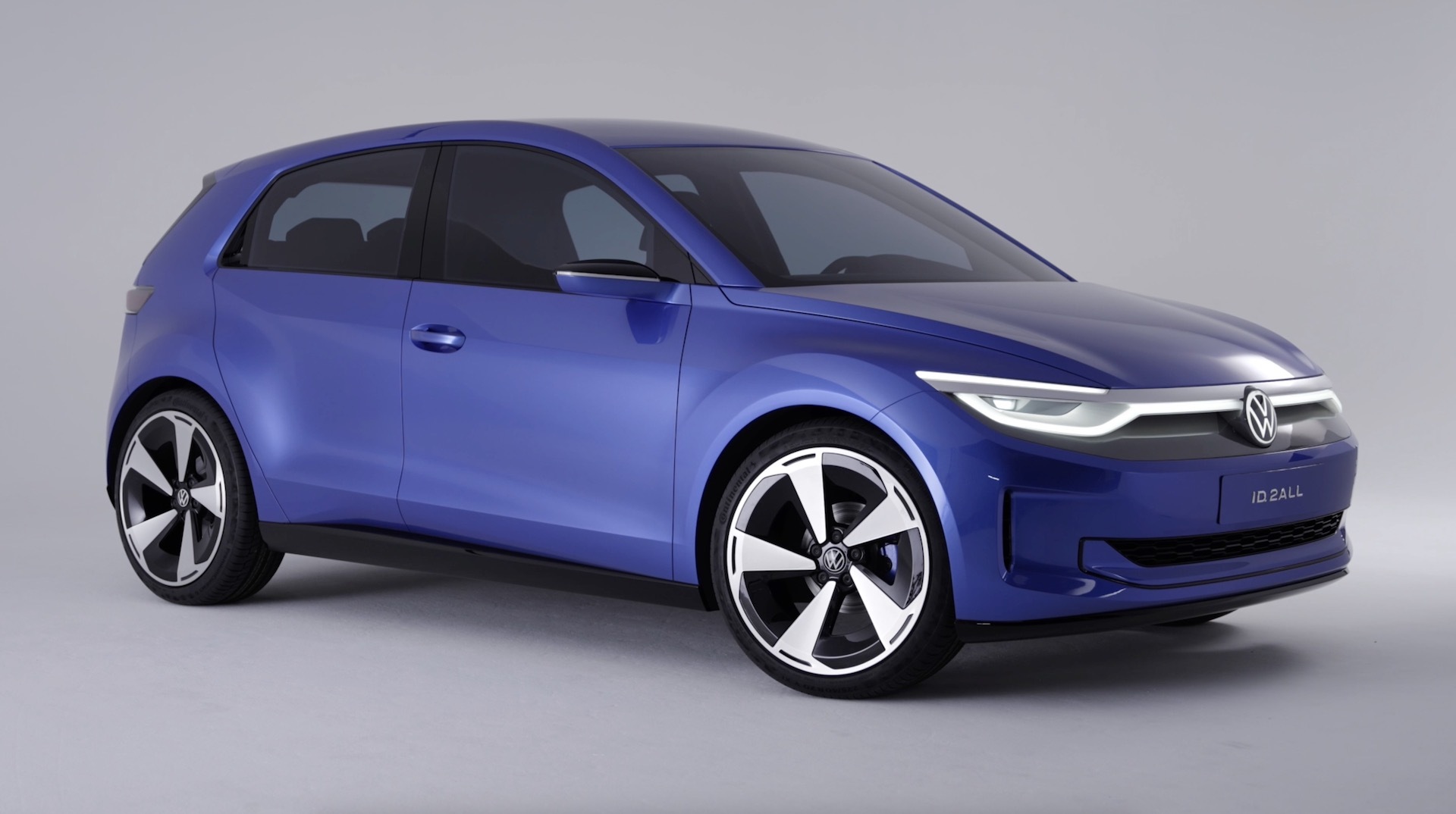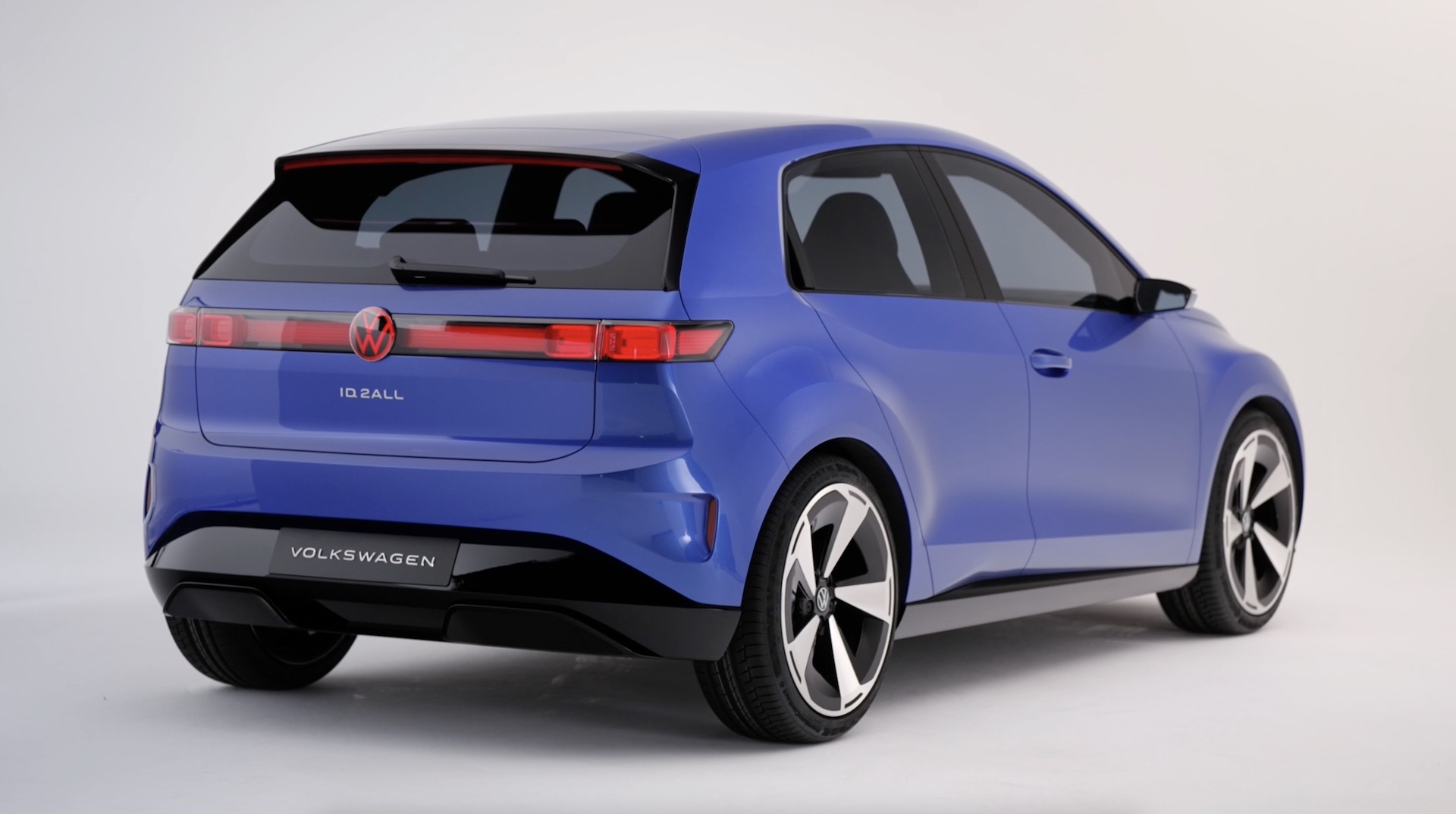Remember how the threat of strict incoming Euro 7 regulations forced VW to kill off the Golf GTI’s manual transmission option, only for the regulations themselves to be dropped? Now those draconian Euro 7 tailpipe rules have claimed another scalp, though this time it’s because they’re NOT happening.
Germany’s Auto Motor und Sport reports that VW has pushed back the start of volume production of its €25k ($27k) ID.2 electric hatch from 2025 to 2026 because the now watered-down Euro 7 regs allow carmakers, including VW, to continue making and selling small combustion-engined cars longer than previously expected.
The EU bowed to pressure from multiple carmaking nations and toned down the planned Euro 7 regulations late last year to the point that the new car tailpipe emissions standard is effectively identical to the old Euro 6 one. There was some clean-air progress though, in the form of tighter regulations for bus and commercial truck exhaust pollutants, as well as brake and tire particle standards for passenger cars.
Related: VW’s Design Boss Confirms ID. GTI Coming In 2026
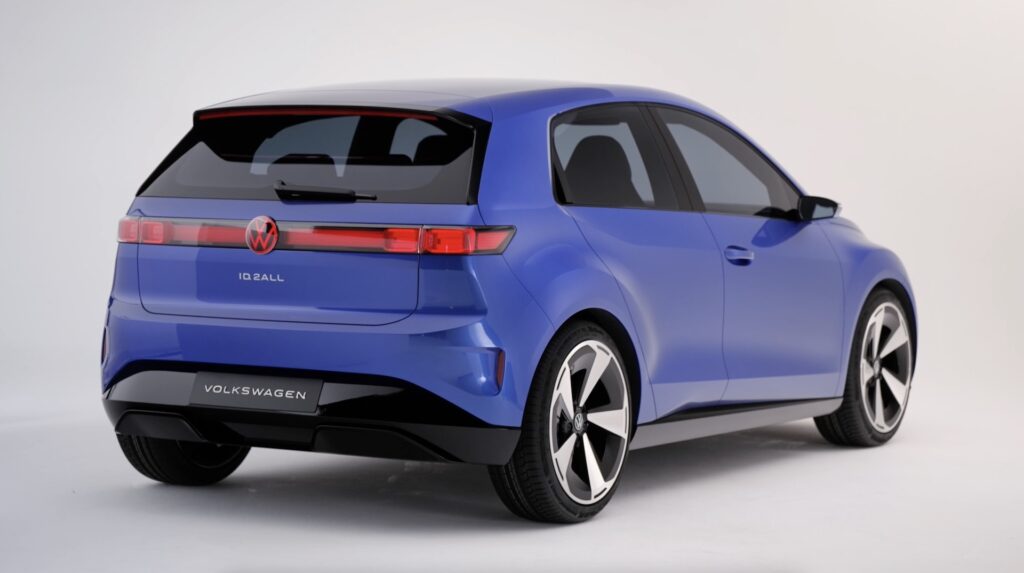
AMS says VW is still planning to reveal the production version of 2023’s ID.2all concept in 2025 and will begin small-scale production that same year. But full-scale production won’t now happen until 2026, a timeframe that would put the ID.2 behind other incoming affordable EVs, including the Citroen e-C3 and Chinese rivals that are beginning to infiltrate the continent.
VW boss Thomas Schaefer also told the magazine that the company would now only plan to build 80 percent of a new vehicle’s maximum expected sales volume to prevent unsold cars from piling up if demand collapsed. VW was recently forced to temporarily pause production of its EVs due to slowing demand in Europe. Schaefer explained that extra shifts would be added to crank out additional units should any new car prove a hit with customers.




